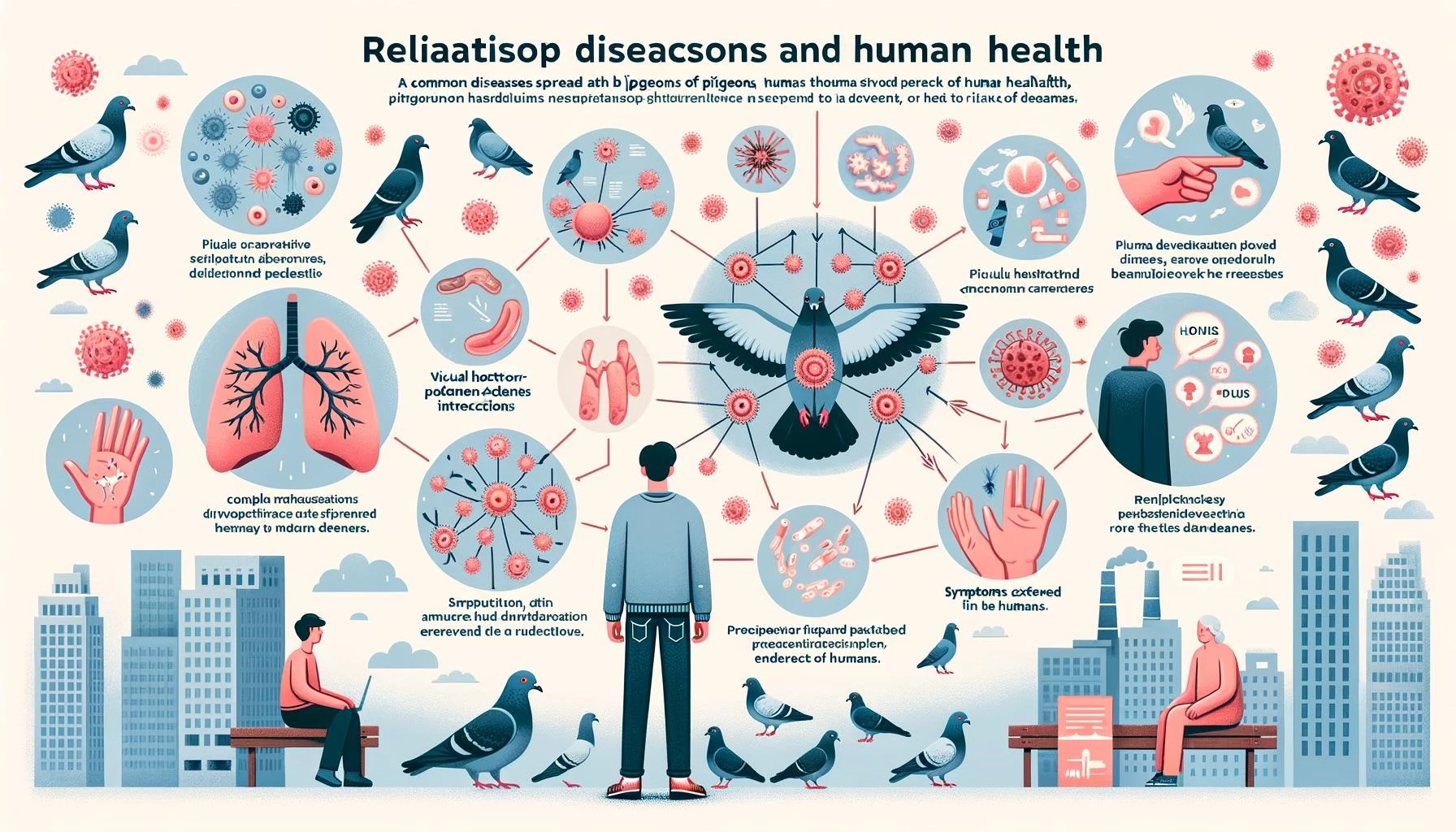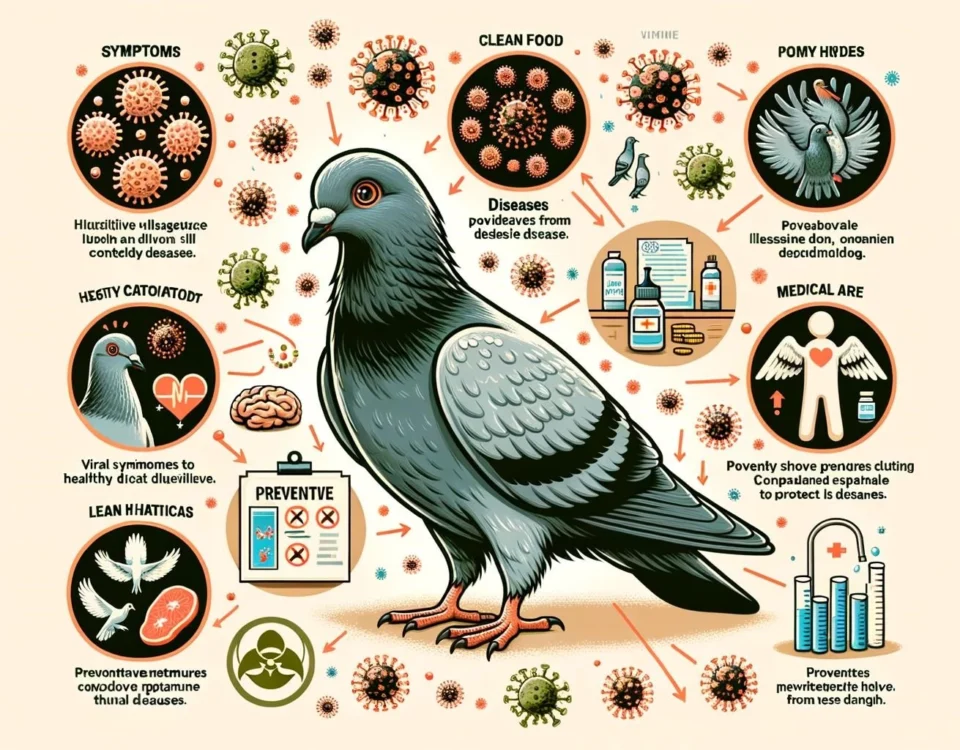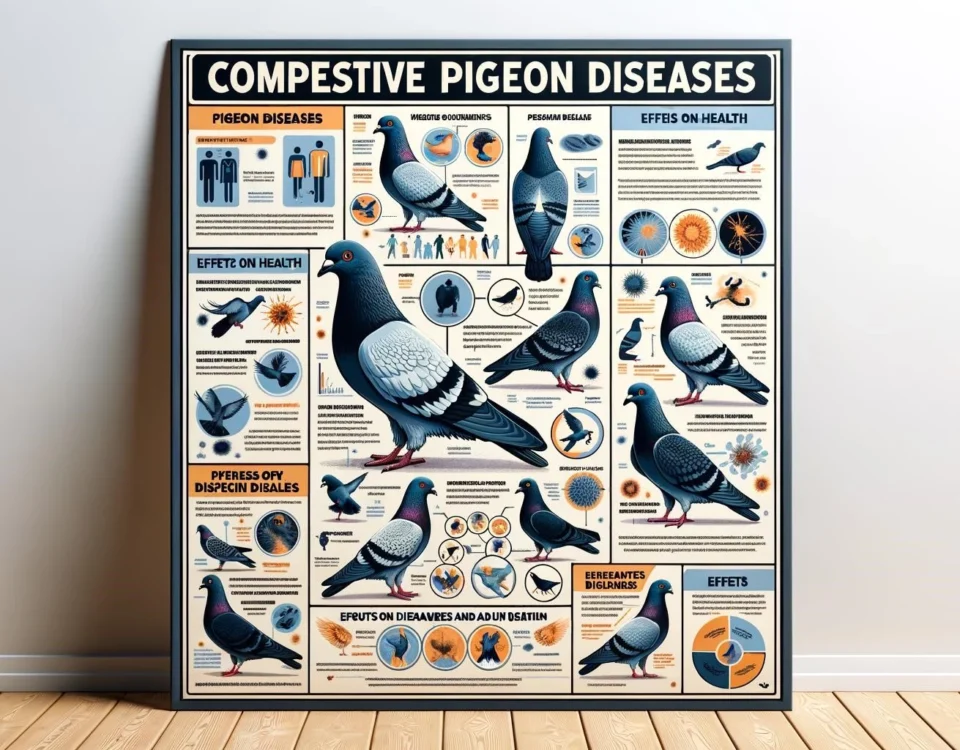Pigeons are often seen as beautiful and harmless birds, but they can actually carry various diseases that pose risks to human health. In this article, we will explore the potential link between pigeons and heart diseases, along with other diseases they can carry, their symptoms and transmission, health implications, prevention and control measures, as well as safety measures for interacting with pigeons.
Key Takeaways
- Pigeons can carry diseases, including avian influenza, histoplasmosis, salmonellosis, campylobacteriosis, cryptococcosis, and chlamydiosis.
- Pigeon-borne diseases can lead to potential complications, especially for individuals with weakened immune systems.
- Symptoms of pigeon-borne diseases in humans may include respiratory problems, fever, fatigue, gastrointestinal issues, and flu-like symptoms.
- Prevention is vital in protecting oneself from pigeon-borne diseases, including minimizing exposure, regular cleaning and disinfection practices, and implementing effective pigeon control strategies.
- Safe handling techniques, such as wearing gloves and practicing good hygiene, should be followed when interacting with pigeons.
Pigeons and Disease Transmission
Pigeons can carry various diseases that can potentially affect human health. Some of the diseases associated with pigeons include avian influenza (bird flu), histoplasmosis, salmonellosis, campylobacteriosis, cryptococcosis, and chlamydiosis. These diseases can affect different systems of the body, including the respiratory system, digestive system, and nervous system.
Transmission of these diseases can occur when people come into contact with pigeon droppings, contaminated soil, or by inhaling fungal spores present in the dust created when cleaning droppings. It is important to note that the risk of contracting these diseases from pigeons is relatively rare, but individuals with weakened immune systems are more susceptible to complications.
Symptoms and Health Implications
Symptoms of pigeon-borne diseases in humans may vary depending on the specific disease but can include respiratory problems, fever, fatigue, gastrointestinal issues, and flu-like symptoms. In severe cases, these diseases can lead to complications such as pneumonia, meningitis, encephalitis, or other life-threatening conditions.
Individuals with weakened immune systems, including the elderly, young children, and those with underlying health conditions, are at higher risk for developing severe complications from pigeon-borne diseases.
Prevention and Safety Measures
Prevention plays a crucial role in protecting oneself from pigeon-borne diseases. Minimizing exposure to pigeons and their droppings is important, especially in areas where pigeons congregate. Regular cleaning and disinfection practices should be followed to eliminate any potential health risks.
Implementing effective pigeon control strategies, such as installing bird spikes or netting, can help mitigate the presence of pigeons. Safe handling techniques, such as wearing gloves when cleaning bird droppings, and practicing good hygiene, including thorough handwashing after contact with pigeons or their droppings, are crucial for reducing the risk of disease transmission.
While the risk of contracting diseases from pigeons is relatively rare, it is important to be aware of the potential health risks associated with these birds. By understanding the common diseases associated with pigeons, their symptoms and transmission, as well as the health risks involved, individuals can take necessary precautions to protect themselves and ensure a healthier environment for everyone.









